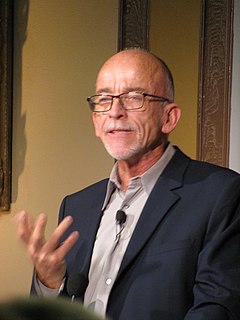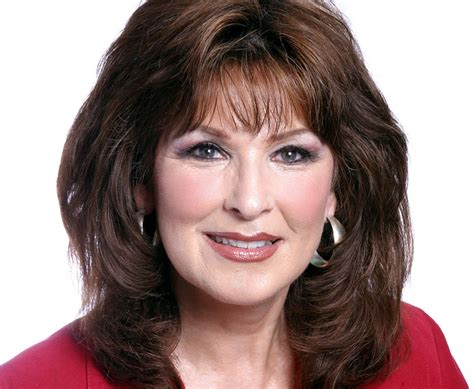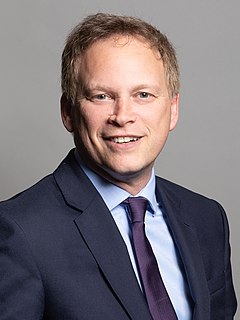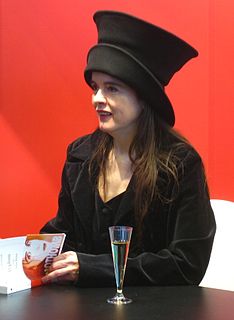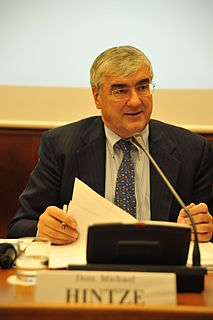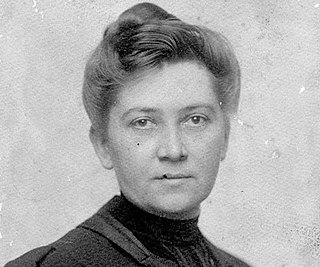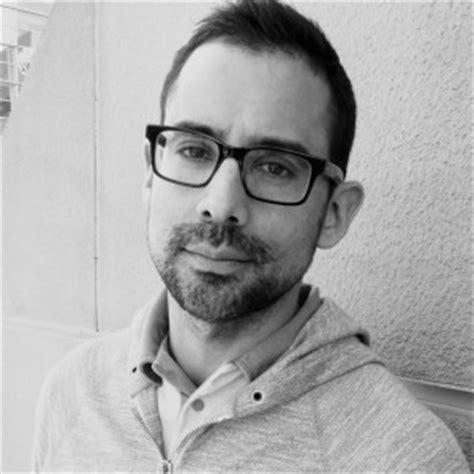A Quote by Bertrand Russell
Some care is needed in using Descartes' argument. "I think, therefore I am" says rather more than is strictly certain. It might seem as though we are quite sure of being the same person to-day as we were yesterday, and this is no doubt true in some sense. But the real Self is as hard to arrive at as the real table, and does not seem to have that absolute, convincing certainty that belongs to particular experiences.
Related Quotes
Property is, after all, a social convention, an agreement about someone's exclusive right to use a thing in specified ways. However, we seem to have forgotten this. We seem to think that property belongs to us in some essential way, that it is of us. We seem to think that our property is part of ourselves, and that by owning it we therefore make ourselves more, larger, greater.
Grief does not seem to me to be a choice. Whether or not you think grief has value, you will lose what matters to you. The world will break your heart. So I think we’d better look at what grief might offer us. It’s like what Rilke says about self-doubt: it is not going to go away, and therefore you need to think about how it might become your ally.
A man who does not endeavour to seem more than he is will generally be thought nothing of. We habitually make such large deductions for pretence and imposture that no real merit will stand against them. It is necessary to set off our good qualities with a certain air of plausibility and self-importance, as some attention to fashion is necessary.
At times it may seem as though you and your past are one. Sometimes we fail to differentiate between what has happened to us and who we are today. If you have a hard time getting beyond that damaging mind-set let me encourage you right now. You are not your past Although you are changed and shaped by past experiences who you were yesterday does not control the person you have the potential to become tomorrow.
Pascal makes no attempt in this most famous argument to show that his Roman Catholicism is true or probably true. The reasons which he suggests for making the recommended bet on his particular faith are reasons in the sense of motives rather than reasons in the sense of grounds. Conceding, if only for the sake of the present argument, that we can have no knowledge here, Pascal tries to justify as prudent a policy of systematic self-persuasion, rather than to provide grounds for thinking that the beliefs recommended are actually true.
"There is one basis of science," says Descartes, "one test and rule of truth, namely, that whatever is clearly and distinctly conceived is true." A profound psychological mistake. It is true only of formal logic, wherein the mind never quits the sphere of its first assumptions to pass out into the sphere of real existences; no sooner does the mind pass from the internal order to the external order, than the necessity of verifying the strict correspondence between the two becomes absolute. The Ideal Test must be supplemented by the Real Test, to suit the new conditions of the problem.
It’s true that someone will always say that good and evil don’t exist: that is a person who has never had any dealings with real evil. Good is far less convincing than evil, but it’s because their chemical structures are different. Like gold, good is never found in a pure state in nature: it therefore doesn’t seem impressive. It has the unfortunate tendency not to act; it prefers, passively, to be seen.
It has often been argued that absolute scepticism is self-contradictory; but this is a mistake: and even if it were not so, it would be no argument against the absolute sceptic, inasmuch as he does not admit that no contradictory propositions are true. Indeed, it would be impossible to move such a man, for his scepticism consists in considering every argument and never deciding upon its validity; he would, therefore, act in this way in reference to the arguments brought against him.
When a scientist doesn't know the answer to a problem, he is ignorant. When he has a hunch as to what the result is, he is uncertain. And when he is pretty darn sure of what the result is going to be, he is still in some doubt. We have found it of paramount importance that in order to progress we must recognize our ignorance and leave room for doubt. Scientific knowledge is a body of statements of varying degrees of certainty - some most unsure, some nearly sure, but none absolutely certain.
I think oysters are more beautiful than any religion,' he resumed presently. 'They not only forgive our unkindness to them; they justify it, they incite us to go on being perfectly horrid to them. Once they arrive at the supper-table they seem to enter thoroughly into the spirit of the thing. There's nothing in Christianity or Buddhism that quite matches the sympathetic unselfishness of an oyster.
This is a world that is much more uncertain than the past. In the past we were certain, we were certain it was us versus the Russians in the past. We were certain, and therefore we had huge nuclear arsenals aimed at each other to keep the peace. That's what we were certain of... You see, even though it's an uncertain world, we're certain of some things. We're certain that even though the "evil empire" may have passed, evil still remains.
As I have grown older I am more and more convinced that I have not grown up, that my powers have not come to me, not my real wisdom to do and achieve the right thoughts. I lack some dear grace. I cannot seem to steady down and get the single eye. There is a curriculum in living in which I have not studied. This may be happiness. I want to know it; I should feel better prepared for immortality. I do not wish to arrive fagged at last and a bit slipshod in the spirit, as if I had a hard time all my mortal life. It is not complimentary to God.
I am probably going to pay for this at some point, but I think pretty much everyone I come into contact with is fair game. So I use real names sometimes if the poem says it happened like that. It feels right if I use the real person I reference. Of course the poem is all lies, even when it's true, so I guess I can sleep at night.
Just supposing for the sake of the argument that there is a being of such a kind as that He may with any propriety be called "God", it does seem antecedently very improbable that weak and limited creatures of a day, such as we are, should discover Him by our own efforts.... who could be discovered in that way would hardly be worth discovering. I think we ought to stick to that principle rather firmly. I think we ought to be rather sure that we cannot know God unless God has been pleased to reveal Himself to us.


